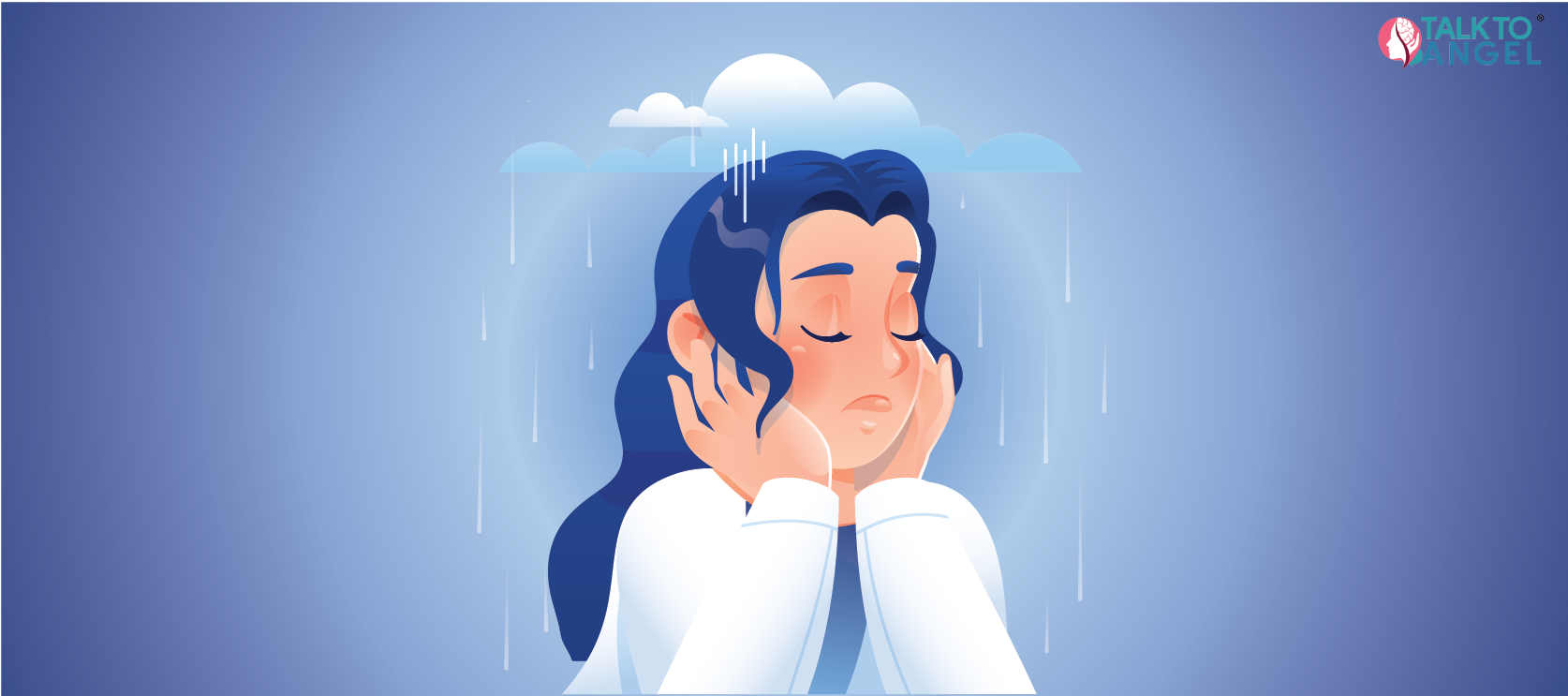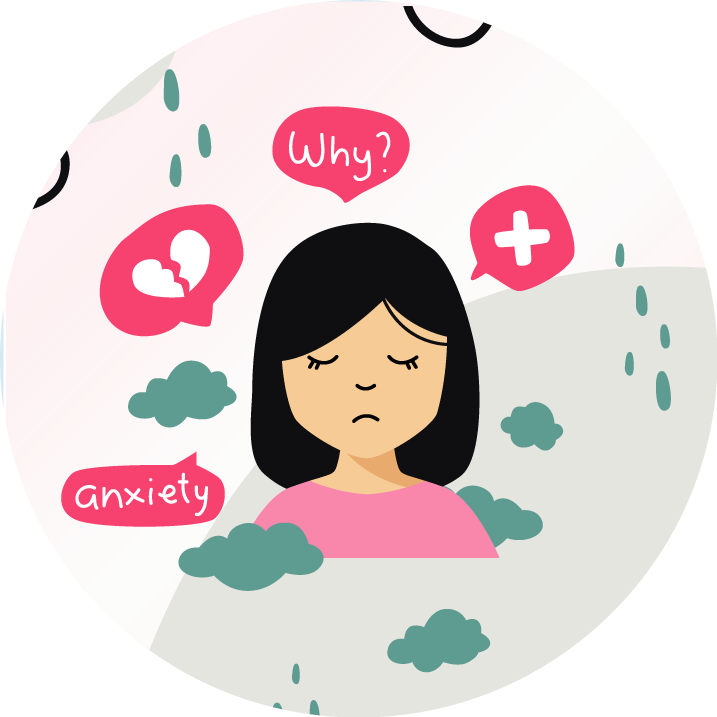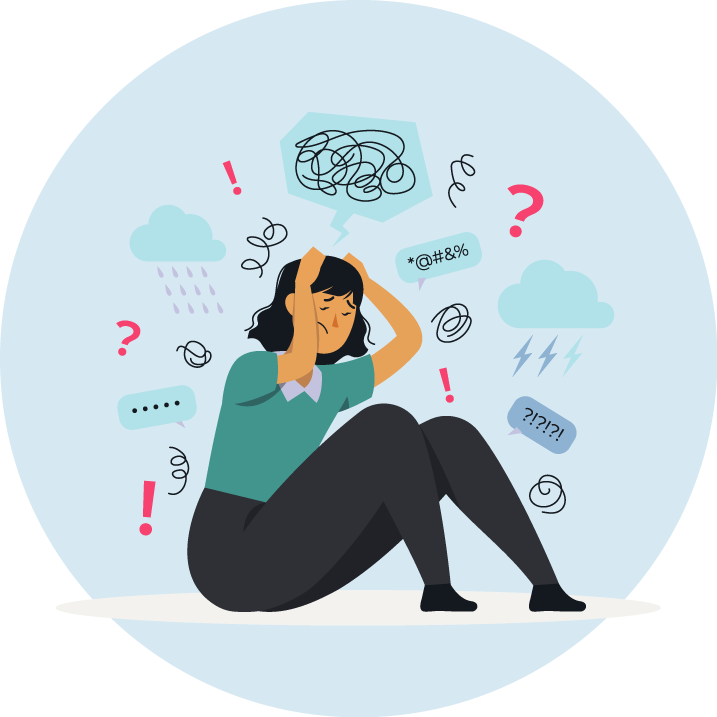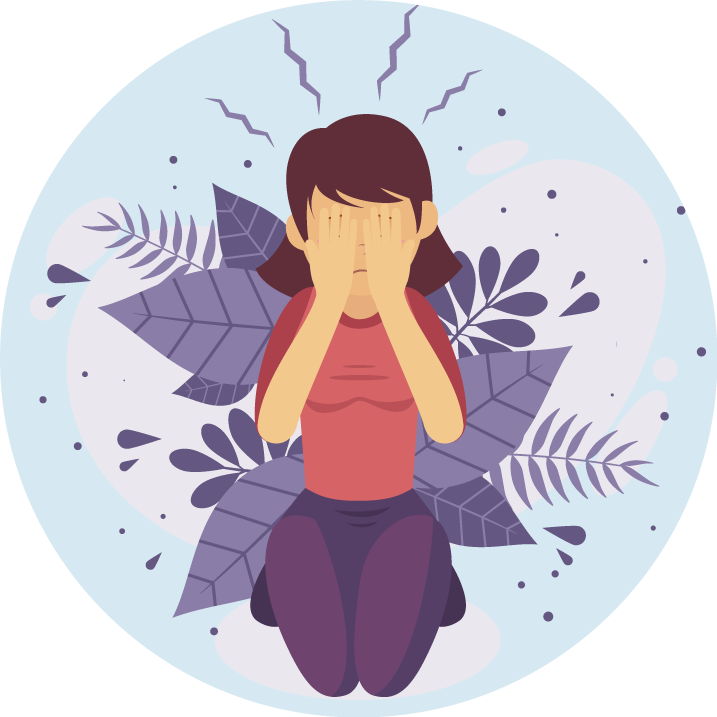10 Things to Know About High-Functioning Depression

10 Things to Know About High-Functioning Depression
July 30 2025 TalktoAngel 0 comments 289 Views
Depression is commonly linked to noticeable symptoms like social withdrawal, persistent sadness, low motivation, and declining job performance. Depression can often be hidden, with symptoms that are subtle and not easily detected. High-functioning depression—also referred to as Persistent Depressive Disorder (PDD) or dysthymia—is a less visible yet equally difficult form of the condition. People experiencing it may appear to function well in their personal and professional lives while silently battling internal struggles. Because it's often hidden behind success, productivity, or even smiles, high-functioning depression is frequently overlooked or misunderstood.
1. It’s a Chronic Condition
High-functioning depression typically falls under the category of Persistent Depressive Disorder, a chronic form of depression lasting for at least two years in adults (American Psychiatric Association, 2013). Unlike major depressive episodes, symptoms may not be severe but are consistent and long-term, often draining an individual's energy and enthusiasm over time.
2. People May Still Be Productive
Contrary to common stereotypes about depression, individuals with high-functioning depression often appear outwardly successful, meeting work deadlines, sustaining relationships, and handling everyday responsibilities. This can lead to the dangerous assumption that they’re fine because they’re functioning. Their high performance often masks their emotional suffering. A teacher may enthusiastically manage her classroom, smile with colleagues, and still feel worthless, emotionally exhausted, and disconnected when alone.
3. Symptoms Are Subtle but Persistent
Symptoms may include:
- Low self-esteem
- Chronic fatigue
- Difficulty experiencing joy
- Hopelessness
- Poor appetite or overeating
- Difficulty concentrating
Because these symptoms are less intense than those of major depression, they may be dismissed as personality traits or temporary phases.
4. Self-Criticism and Guilt Are Common
Many individuals with high-functioning depression struggle with self-critical thoughts. They may feel guilty for being ungrateful or for not enjoying the life they’ve built, especially if everything seems ‘perfect’ on the outside. This internal dialogue often reinforces their silence: ‘I have no reason to be sad. Others have it worse. ’
5. Social Withdrawal Is Subtle
Instead of complete social isolation, a person with high-functioning depression might become less emotionally engaged, reduce communication, or avoid making new social plans. They may show up for events but feel emotionally detached or drained afterwards.
6. It Can Go Undiagnosed for Years
Since people with high-functioning depression often don’t display overt signs of distress, and since they may not recognise their symptoms as clinical, the condition frequently goes undiagnosed. Many seek help only when their ability to function begins to erode or when a major life stressor worsens their symptoms.
A 35-year-old IT professional came for therapy after a minor panic attack. On exploration, she revealed a 10-year history of persistent low mood, poor sleep, and self-doubt—none of which she had previously considered a mental health concern due to her otherwise ‘successful’ life.
7. Perfectionism and People-Pleasing May Mask Pain
Individuals with high-functioning depression are often characterised by perfectionism and a persistent drive to overachieve. Their desire to meet expectations—both internal and external—can be a way to distract from their emotional pain or feel a temporary sense of control and worthiness. This pattern can lead to burnout and deeper emotional exhaustion over time.
8. Substance Use Can Be a Coping Strategy
Because of the chronic emotional discomfort, individuals might turn to alcohol, drugs, or excessive work to numb their feelings. These coping strategies may worsen over time and lead to additional mental or physical health challenges.
9. Support Systems May Not Notice the Struggle
Friends, family, or coworkers may fail to notice anything is wrong because there are no dramatic warning signs. Moreover, people with high-functioning depression often find it hard to talk about their feelings or may minimise them when asked. This highlights the importance of checking in with loved ones beyond the surface: ‘You seem busy lately—how are you, really?’
10. Treatment Is Effective and Available
Despite its subtle presentation, high-functioning depression is treatable. A combination of ‘psychotherapy’ (especially Cognitive Behavioural Therapy), ‘medication’ (like SSRIs), and ‘lifestyle modifications’ (like mindfulness, exercise, and improved sleep hygiene) is effective (Cuijpers et al., 2014). Early intervention plays a crucial role in preventing the development of major depression and enhancing overall well-being.
Conclusion
High-functioning depression challenges our understanding of what mental illness should look like. A person's outward appearance of being fine doesn't necessarily reflect the internal struggles they may be facing. By becoming more aware, compassionate, and curious about the mental health of those around us—including ourselves—we can foster a more emotionally safe and responsive community.
If you or someone you know seems to be persistently ‘just getting by,’ encourage seeking help. Therapy isn't just for moments of crisis; it's also a valuable resource for uncovering and healing hidden emotional pain. TalktoAngel is the best platform for seeking online therapy.
Contributed By: Dr. (Prof.) R. K. Suri, Clinical Psychologist and Life Coach, &. Ms.Chanchal Agarwal, Counselling Psychologist.
References
- American Psychiatric Association. (2013). Diagnostic and Statistical Manual of Mental Disorders (5th ed.).
- Cuijpers, P., Andersson, G., Donker, T., & van Straten, A. (2014). Psychological treatment of depression: Results of a series of meta-analyses. Nordic Journal of Psychiatry, 68(7), 470–478.
- National Institute of Mental Health. (n.d.). Persistent Depressive Disorder. Retrieved from: [https://www.nimh.nih.gov]
- Burcusa, S. L., & Iacono, W. G. (2007). Risk for recurrence in depression. Clinical Psychology Review, 27(8), 959–985.
- https://www.talktoangel.com/blog/how-to-get-help-for-depression
- https://www.talktoangel.com/blog/how-to-spot-hidden-depression-in-loved-ones
- https://www.talktoangel.com/blog/atypical-depression-signs-diagnosis-and-available-treatments
Leave a Comment:
Related Post
Categories
Related Quote

“Anxiety is a thin stream of fear trickling through the mind. If encouraged, it cuts a channel into which all other thoughts are drained.” - Arthur Somers Roche

"It is okay to have depression, it is okay to have anxiety and it is okay to have an adjustment disorder. We need to improve the conversation. We all have mental health in the same way we all have physical health." - Prince Harry

“You say you’re ‘depressed’ – all I see is resilience. You are allowed to feel messed up and inside out. It doesn’t mean you’re defective – it just means you’re human.” - David Mitchell, Cloud Atlas

"You are allowed to feel messed up and inside out. It doesn't mean you're defective—it just means you're human." - David Mitchell, Cloud Atlas

“My anxiety doesn't come from thinking about the future but from wanting to control it.” - Hugh Prather
Best Therapists In India


































SHARE